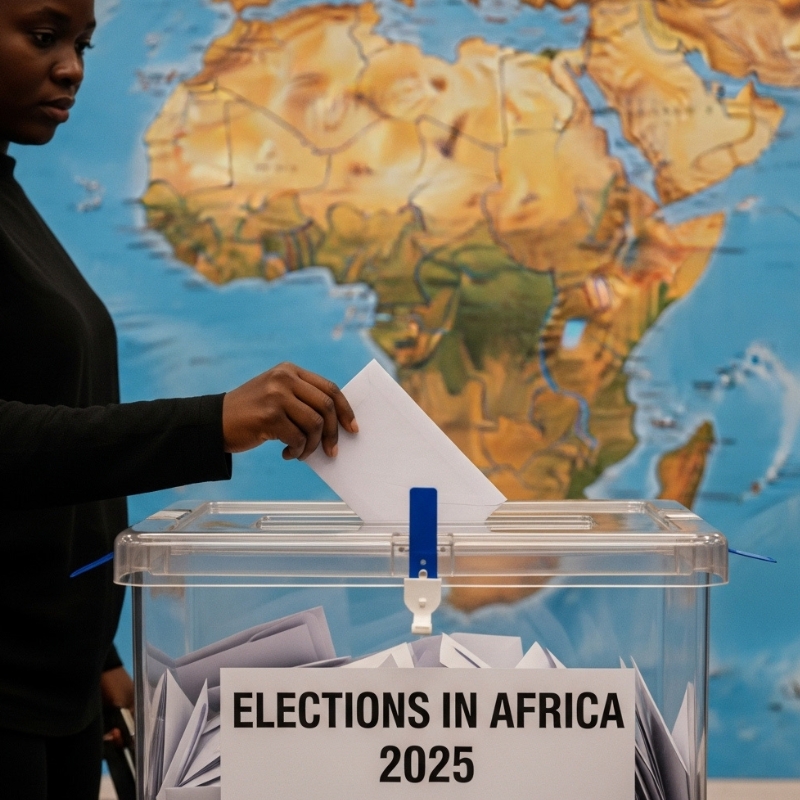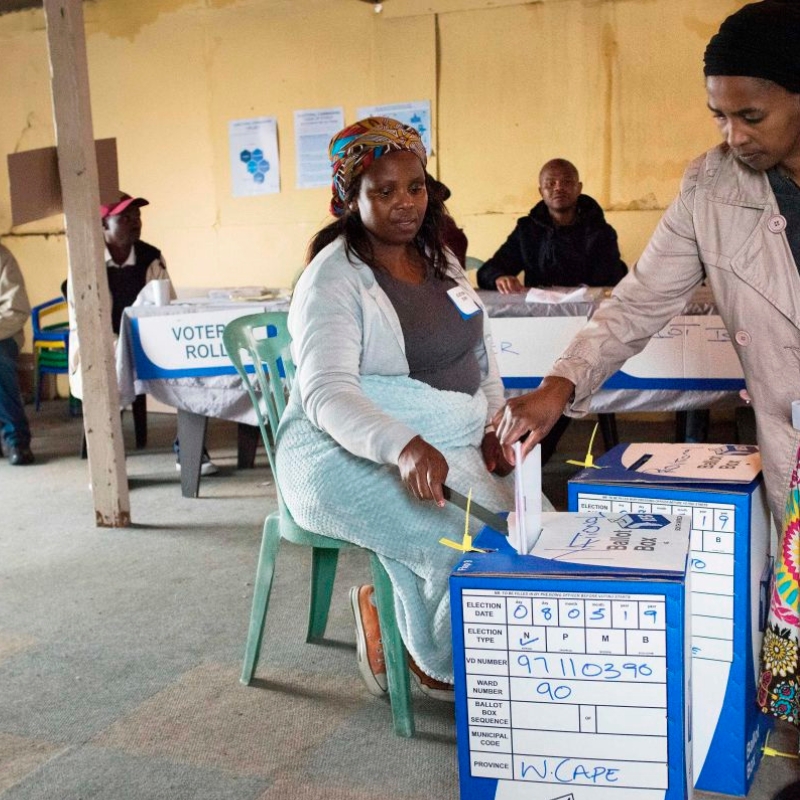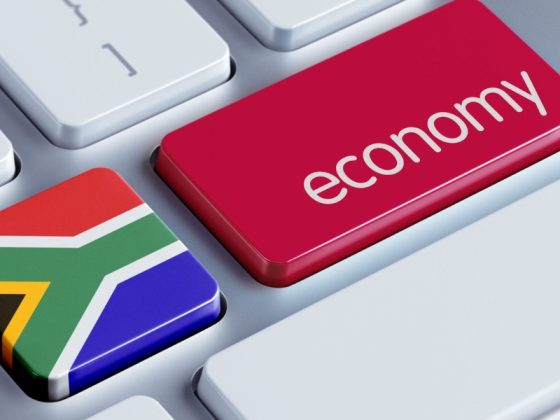
The 2025 electoral cycle in Africa has underscored both the promise and the persistent fragility of the continent’s democratic experiment. In Malawi and Seychelles, well-administered elections with high turnout and transparent processes highlighted the potential of strong institutions to deliver credible outcomes and peaceful transfers of power.
By contrast, Tanzania’s polls exposed structural weaknesses and constraints on political freedom, drawing regional criticism for limiting judicial review and curtailing independent candidacies. Cameroon and Côte d’Ivoire further illustrated how entrenched incumbents leverage state resources, manipulate electoral frameworks, and marginalise opposition to maintain dominance, even as constitutional mandates ostensibly uphold democratic norms.
Together, these contests reflect a complex landscape in which procedural democracy often coexists uneasily with entrenched power, raising enduring questions about whether elections genuinely translate into political accountability and citizen empowerment.
Africa’s democratic journey
Since the early 1990s, Africa’s democratic evolution has unfolded in three phases, reflecting a tension between hope, reform, and fragility. The first, the Democratic Awakening (early 1990s–early 2000s), followed the Cold War and the collapse of authoritarian regimes, driven by civil society and international pressure. Countries such as Benin, Ghana, Zambia, Malawi, Mali, and Tanzania held their first multiparty elections in decades, revised constitutions to include term limits and decentralisation, and expanded civil freedoms. This “second liberation” laid the foundation for procedural democracy, but most transitions were elite-led and dependent on external support, leaving institutions weak and power structures largely intact.
The second phase, Dominant-Party and Hybrid Regimes (mid-2000s–mid-2010s), saw incumbents consolidate power. Parties like ZANU-PF in Zimbabwe, CCM in Tanzania, FRELIMO in Mozambique, and NRM in Uganda used patronage, media control, and electoral manipulation to maintain dominance. Opposition was often harassed, co-opted, or constrained, producing what analysts call “democracy by default.” In countries like Uganda, Zimbabwe and Cameroon, term limits were frequently ignored or amended, and electoral violence in Kenya, Zimbabwe, and Côte d’Ivoire exposed institutional fragility. Elections existed in form but rarely translated into genuine competition or accountability.
The third phase, Democratic Resilience and Recalibration (mid-2010s–present), reflects rising citizen demands for accountability, service delivery, and responsive governance. Peaceful transitions in Ghana, Malawi, and Nigeria, civic activism in Senegal and Zambia, and judicial oversight in Kenya and Malawi signal progress. Technological tools, such as social media, have expanded civic participation. Yet democratic backsliding persists in parts of West and Central Africa, with coups in Mali, Burkina Faso, Niger, and Gabon highlighting ongoing vulnerability. Structural constraints – entrenched elites, economic hardship, and fragile security – continue to limit the consolidation of substantive democracy.

The democratic paradox
Despite significant progress in electoral participation and institutional development, credible democracy across much of Africa remains elusive. Weak, politically captured institutions undermine electoral integrity and accountability. Electoral commissions, often underfunded and vulnerable to executive interference, struggle to manage voter registration, ballot security, and dispute resolution independently. Officeholders exploit the incumbency advantage, manipulating state resources, media coverage, and regulatory frameworks to consolidate power. Opposition parties frequently face harassment, co-optation, or systemic barriers to meaningful participation, reducing political competition and curbing citizen choice.
Legacy factors also shape the political landscape. Many countries’ liberation histories or experiences with militarised politics have produced dominant-party systems in which opposition is tolerated but rarely competitive. External influence, through donor states, international observer missions, and multilateral organisations, often prioritises stability and procedural compliance over substantive reform. Socioeconomic pressures exacerbate these challenges, with poverty, inequality, and rising living costs incentivising patronage politics, where elites trade short-term benefits for loyalty rather than responding to public policy needs. Fragile security environments, from the Sahel to the Horn of Africa, further constrain access to polling stations, intimidate voters, and reduce inclusivity.
The private sector has increasingly emerged as a critical player in reinforcing democratic integrity, particularly in countries like South Africa, where scrutiny of political party funding is rising. Businesses can contribute to transparency by adhering to clear rules on political donations, supporting non-partisan civic education, and investing in initiatives that strengthen electoral institutions. By promoting accountability and discouraging opaque funding arrangements that perpetuate incumbent dominance, private actors can help balance state-citizen relations and create incentives for policy-oriented governance rather than purely patronage-driven politics. Partnerships between the private sector, civil society, and independent oversight bodies can thus act as a stabilising force in electoral ecosystems where formal institutions remain vulnerable.
Ironically, while electoral activity has increased dramatically, the quality of democracy has largely plateaued. Countries such as Ghana, Seychelles, Malawi, and South Africa illustrate the potential of strong institutions, transparent processes, and peaceful transfers of power. Yet these remain exceptions rather than the rule. In many parts of Africa, elections have become rituals rather than mechanisms of transformative change. Democratic institutions exist on paper, but power relations often remain static, leaving citizens’ preferences underrepresented and political renewal limited. Strengthening independent institutions, enhancing civic resilience, and embedding accountability mechanisms, including through responsible private-sector engagement, are critical to moving from procedural democracy toward substantive citizen empowerment.
Trends in 2024-2025
Recent elections illustrate both progress and persistent weaknesses. In 2024, around 18 national contests were scheduled, although some transitions, particularly in West Africa, were delayed by military interventions. Senegal overcame a threatened delay when mass protests forced then-President Macky Sall to hold elections as scheduled, resulting in a peaceful transfer of power. South Africa’s 2024 polls produced a historic Government of National Unity after the ANC lost its majority. By contrast, Rwanda’s RPF maintained near-total dominance, with Paul Kagame re-elected at over 99%, an outcome criticised by Western observers as staged.
Mozambique’s elections in October 2024 returned FRELIMO to power with 71% of the vote amid reports of irregularities, while Botswana saw a peaceful transfer of power as President Mokgweetsi Masisi and the BDP were unseated by centre-left opposition Umbrella for Democratic Change (UDC) and Adv. Gideon Boko, respectively. Other contests, including those in Guinea-Bissau, Somaliland, Mauritius, Namibia, and Ghana, highlighted both institutional strengths and ongoing vulnerabilities in governance, transparency, and opposition space.
Africa’s electoral landscape in 2025 similarly displayed a mix of promise and concern. Bright spots included Malawi, where former President Peter Mutharika won 56.8% of the vote in a transparent election praised by AU-COMESA observers, and Seychelles, where a high turnout (85%) and efficient logistics reflected institutional maturity. Conversely, Gabon’s post-coup elections raised concerns over junta influence and electoral neutrality, while Tanzania’s October vote drew SADC criticism for constitutional restrictions on judicial review, limitations on independent candidates, and questions over the independence of the National Electoral Commission. Cameroon and Côte d’Ivoire further demonstrated how dominant parties leverage state resources, restrict opposition, and manipulate institutions to entrench power.
Between the ballot and true representation
The enduring question is whether elections genuinely reflect citizens’ will. Frequently, supposedly independent institutions are swayed by political elites, undermining voter choice and sometimes triggering unrest, as seen in urban clashes in Tanzania and deadly demonstrations in Cameroon. Elections are intended to legitimise governance and foster stability, yet when citizens’ preferences are sidelined through disqualifications, media restrictions, or manipulated tallies, the promise of democracy is compromised.
The 2025 electoral cycle shows incremental progress: widespread violence has decreased compared to earlier decades, and AU frameworks, including the African Charter on Democracy, Elections, and Governance, offer standards for oversight and accountability. However, the continent still requires bolder reforms: electoral commissions must be independent and sufficiently resourced; civil society and media oversight should be strengthened; technological transparency must be guaranteed; private-sector engagement in political finance should be formalised and monitored; and international support should be conditional on substantive democratic outcomes. Only through such measures can Africa bridge the gap between ritualistic balloting and genuine citizen empowerment, transforming the ballot into a true instrument of political renewal and accountability.



